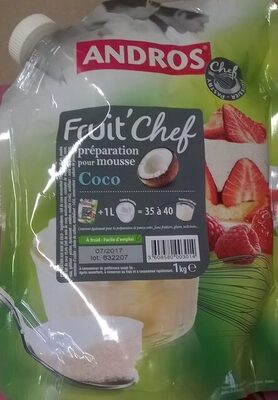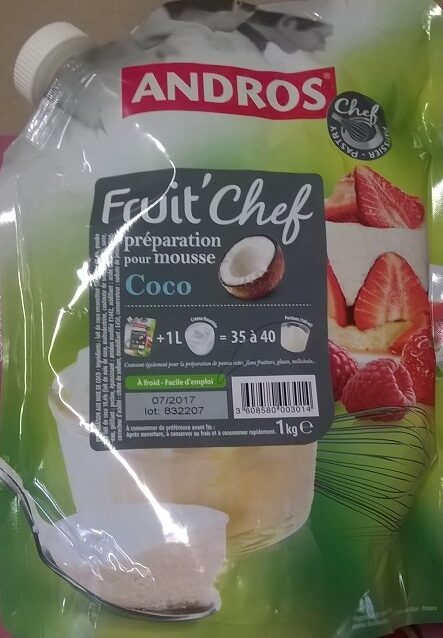Fruit'Chef, préparation pour mousse coco - Andros - 1 kg
This product page is not complete. You can help to complete it by editing it and adding more data from the photos we have, or by taking more photos using the app for Android or iPhone/iPad. Thank you!
×
Barcode: 3608580003014 (EAN / EAN-13)
Common name: Préparation aux noix de coco
Quantity: 1 kg
Packaging: fr:Poche aluminisée
Brands: Andros
Categories: Cooking helpers, Dessert mixes
Countries where sold: France
Matching with your preferences
Environment
Packaging
Transportation
Report a problem
Data sources
Product added on by openfoodfacts-contributors
Last edit of product page on by packbot.
Product page also edited by big-brother, keragui.
If the data is incomplete or incorrect, you can complete or correct it by editing this page.






